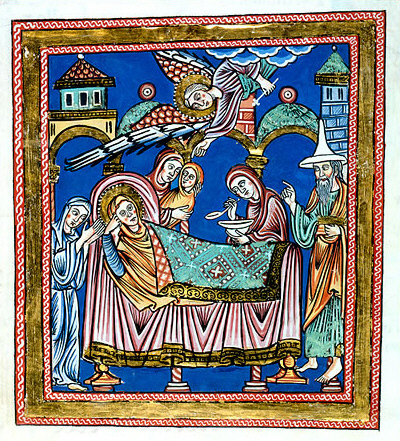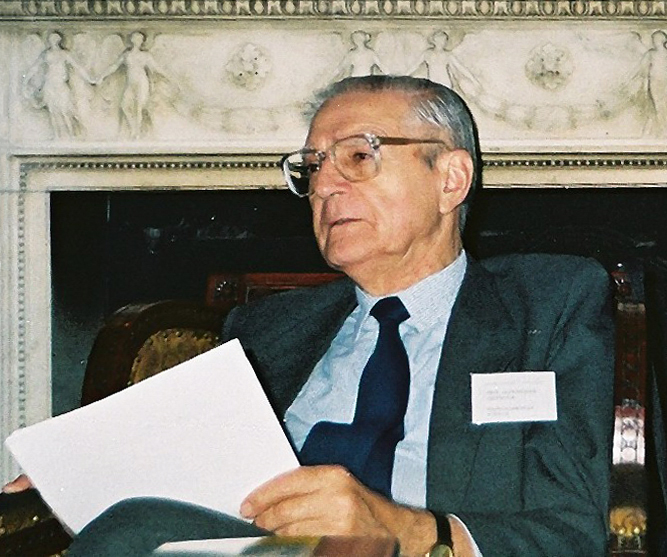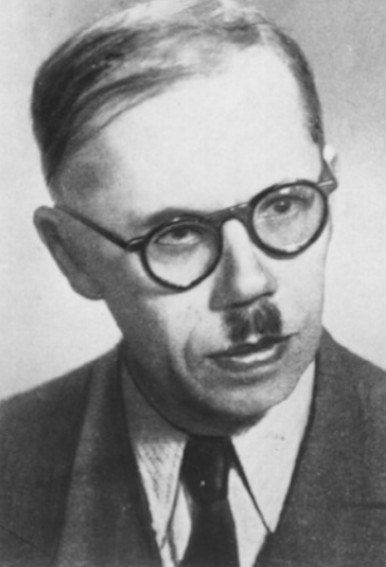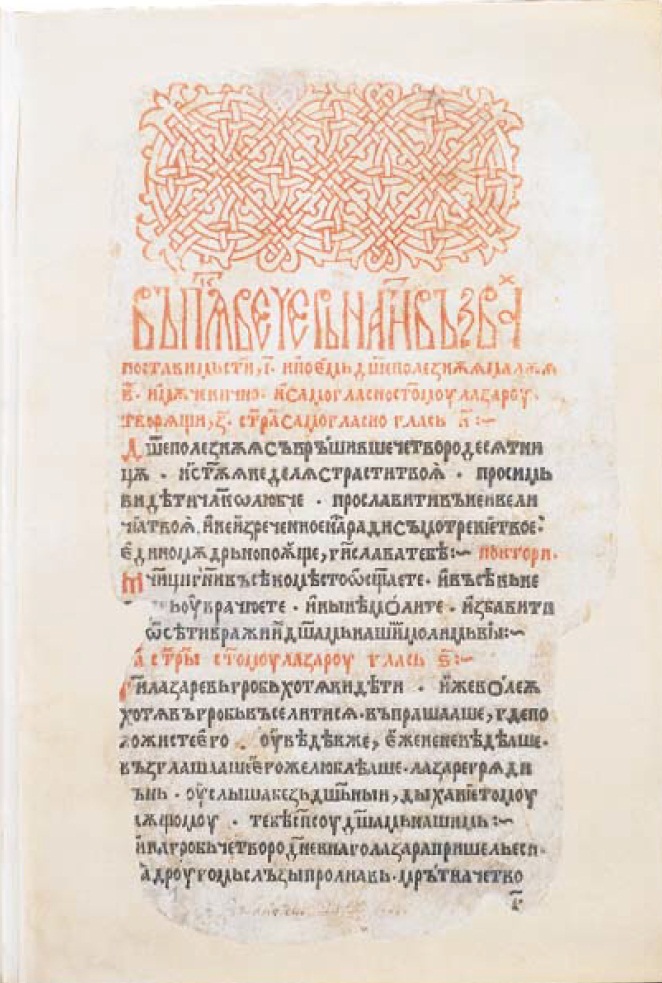|
Jesza
Jesza (read as ''Yesha''; , ) or Jasza (read as ''Yasha''; , ') is an alleged Polish people, Polish god. He was first mentioned around 1405-1412 in the sermons of Lucas of Wielki Koźmin, which warned against worshipping Jesza and other gods during spring rituals and folk performances. He owes his popularity to Jan Długosz's comparison of him to the List of Roman deities, Roman god Jupiter (mythology), Jupiter. Contemporary researchers mostly reject the authenticity of the deity. Latin names should be read as Polish ''Jesza'' or ''Jasza''. In the 15th century, the Polish voiceless retroflex fricative (''sh'' sound) was written as ''ss'' (modern Polish ''sz''). Sources The first known source mentioning the name ''Jesza'' is the ''Pentacostal Sermons'', which were written by Lucas of Wielki Koźmin around 1405-1412, without giving any specific description: Similar warnings, also without any description, are also found in: ''Statua provincialia breviter'' (1420-1422), ''Sermones ... [...More Info...] [...Related Items...] OR: [Wikipedia] [Google] [Baidu] |
Lada (mythology)
Lada, ''Lyada'', ''Alado'' pl, Łada russian: Лада and Lado russian: Ладо are alleged Slavic deities. Lada was first mentioned around 1405-1412 in the sermons of Lucas of Wielki Koźmin, which warned against worshipping Lada and other gods during spring ceremonies and folk performances. They owe their popularity to Długosz, who in one of his sources recognized Lada as a goddess and in another as a god of war, the Polish equivalent of the Roman god Mars, to Aleksandr Faminstyn, who recognized the word ''Lada'' in Russian songs as the goddess of marriage, and to scholar Boris Rybakov, who insisted on recognizing her historicity. However, the vast majority of religious scholars and Slavists reject the historicity of these deities, believing that they owe their divine status to a misunderstanding of the song refrains by medieval scribes. By some scholars of Baltic mythology, Lada was also worshipped by the Balts, but this view is also considered controversial. Pl ... [...More Info...] [...Related Items...] OR: [Wikipedia] [Google] [Baidu] |
Polish People
Poles,, ; singular masculine: ''Polak'', singular feminine: ''Polka'' or Polish people, are a West Slavic nation and ethnic group, who share a common history, culture, the Polish language and are identified with the country of Poland in Central Europe. The preamble to the Constitution of the Republic of Poland defines the Polish nation as comprising all the citizens of Poland, regardless of heritage or ethnicity. The majority of Poles adhere to Roman Catholicism. The population of self-declared Poles in Poland is estimated at 37,394,000 out of an overall population of 38,512,000 (based on the 2011 census), of whom 36,522,000 declared Polish alone. A wide-ranging Polish diaspora (the '' Polonia'') exists throughout Europe, the Americas, and in Australasia. Today, the largest urban concentrations of Poles are within the Warsaw and Silesian metropolitan areas. Ethnic Poles are considered to be the descendants of the ancient West Slavic Lechites and other tribes that inhabite ... [...More Info...] [...Related Items...] OR: [Wikipedia] [Google] [Baidu] |
Joachim Bielski
Joachim (; ''Yəhōyāqīm'', "he whom Yahweh has set up"; ; ) was, according to Christian tradition, the husband of Saint Anne and the father of Mary, the mother of Jesus. The story of Joachim and Anne first appears in the Biblical apocryphal Gospel of James. His feast day is 26 July, a date shared with Saint Anne. In Christian tradition The story of Joachim, his wife Anne (or Anna), and the miraculous birth of their child Mary, the mother of Jesus, was told for the first time in the 2nd-century apocryphal infancy-gospel the Gospel of James (also called Protoevangelium of James). Joachim was a rich and pious man, who regularly gave to the poor. However, Charles Souvay, writing in the ''Catholic Encyclopedia'', says that the idea that Joachim possessed large herds and flocks is doubtful. At the temple, Joachim's sacrifice was rejected, as the couple's childlessness was interpreted as a sign of divine displeasure. Joachim consequently withdrew to the desert, where he fasted ... [...More Info...] [...Related Items...] OR: [Wikipedia] [Google] [Baidu] |
Włodzimierz Szafrański
Włodzimierz may refer to the following : People * Włodzimierz (given name), a Polish variant of the (East) Slavic name Vladimir Places and jurisdictions * Włodzimierz, Greater Poland Voivodeship (west-central Poland) * Włodzimierz, Łask County in Łódź Voivodeship (central Poland) * Włodzimierz, Radomsko County in Łódź Voivodeship (central Poland) * Volodymyr-Volynskyi in Volyn Oblast (Western Ukraine) formerly known as Włodzimierz ołyński* Włodzimierz Voivodeship (1793) * the former Roman Catholic Diocese of Włodzimierz (as Polish for Lodomeria alias Vladimir) See also * Vladimir (name) Vladimir (russian: Влади́мир) is a masculine given name of Slavic origin, widespread throughout all Slavic nations in different forms and spellings. The earliest record of a person with the name is knyaz Vladimir of Bulgaria. Etymolo ... {{DEFAULTSORT:Wlodzimierz es:Vladimiro ku:Vladîmîr sk:Vladimír ... [...More Info...] [...Related Items...] OR: [Wikipedia] [Google] [Baidu] |
Andrzej Szyjewski
Andrzej is the Polish form of the given name Andrew. Notable individuals with the given name Andrzej * Andrzej Bartkowiak (born 1950), Polish film director and cinematographer * Andrzej Bobola, S.J. (1591–1657), Polish saint, missionary and martyr * Andrzej Chyra (born 1964), Polish actor * Andrzej Czarniak (1931–1985), Polish alpine skier * Andrzej Duda (born 1972), Polish 6th president * Andrzej Jajszczyk, Polish scientist * Andrzej Kmicic, fictional protagonist of Henryk Sienkiewicz's novel ''The Deluge'' * Andrzej Kokowski (born 1953), Polish archaeologist * Andrzej Krauze (born 1947), Polish-British cartoonist and illustrator * Andrzej Leder (born 1960), Polish philosopher and psychotherapist * Andrzej Mazurczak (born 1993), Polish basketball player * Andrzej Mleczko (born 1949), Polish illustrator * Andrzej Nowacki (born 1953), Polish artist * Andrzej Paczkowski (born 1938), Polish historian * Sir Andrzej Panufnik (1914–1991), Polish composer * Andrzej Person, Po ... [...More Info...] [...Related Items...] OR: [Wikipedia] [Google] [Baidu] |
Vladimir Toporov
Vladimir Nikolayevich Toporov (russian: Влади́мир Никола́евич Топоро́в; 5 July 1928 in Moscow5 December 2005 in Moscow) was a leading Russian philologist associated with the Tartu-Moscow semiotic school. His wife was Tatyana Elizarenkova. Toporov authored more than 1500 works, including ''Akhmatova and Dante'' (1972), ''Towards the Reconstruction of the Indo-European Rite'' (1982), ''Aeneas: a Man of Destiny'' (1993), ''Myth. Rite. Symbol. Image'' (1995), ''Holiness and Saints in the Russian Spiritual Culture'' (1998), and ''Petersburg Text of Russian Literature'' (2003). He translated the Dhammapada into Russian and supervised the ongoing edition of the most complete vocabulary of the Prussian language to date (5 volumes). Among Toporov's many honours were the USSR State Prize (1990), which he turned down to voice his protest against the repressive January Events of the Soviet administration in Lithuania; the first ever Solzhenitsyn Prize (1998), a ... [...More Info...] [...Related Items...] OR: [Wikipedia] [Google] [Baidu] |
Vyacheslav Ivanov (philologist)
Vyacheslav Vsevolodovich Ivanov (russian: Вячесла́в Все́володович Ива́нов , 21 August 1929 – 7 October 2017) was a prominent Soviet/Russian philologist, semiotician and Indo-Europeanist probably best known for his glottalic theory of Indo-European consonantism and for placing the Indo-European urheimat in the area of the Armenian Highlands and Lake Urmia. Early life Vyacheslav Ivanov's father was Vsevolod Ivanov, one of the most prominent Soviet writers. His mother was an actress who worked in the theatre of Vsevolod Meyerhold. His childhood was clouded by disease and war, especially in Tashkent. Ivanov was educated at Moscow University and worked there until 1958, when he was fired on account of his sympathy with Boris Pasternak and Roman Jakobson. By that time, he had made some important contributions to Indo-European studies and became one of the leading authorities on Hittite language. Career * 1959–1961 — head of the Research Group for Mac ... [...More Info...] [...Related Items...] OR: [Wikipedia] [Google] [Baidu] |
Aleksander Gieysztor
Aleksander Gieysztor (17 July 1916 – 9 February 1999) was a Polish medievalist historian. Life Aleksander Gieysztor was born to a Polish family in Moscow, Russia, where his father worked as a railwayman. In 1921, the family relocated to Poland and settled in Warsaw. He graduated in history from the University of Warsaw in 1937. He was married to Irena Gieysztor née Czarnecka, a fellow historian. The Aleksander Gieysztor Prize of the Kronenberg Foundation and the Aleksander Gieysztor Academy of Humanities are named after him. Awards *1944: Silver Cross of the Order Virtuti Militari *1961: Legion d'Honneur *1980: The Order of Merit of the Federal Republic of Germany *1994: Order of the White Eagle *1993: Commander's Cross with Star of the Order of Polonia Restituta A 1993 President's decree on gr ... [...More Info...] [...Related Items...] OR: [Wikipedia] [Google] [Baidu] |
Stanisław Urbańczyk
Stanisław Urbańczyk (27 July 1909 – 23 October 2001) was a Polish linguist and academic, a professor at the universities of Toruń, Poznań and Kraków. He was the head of the Institute of the Polish Language at the Polish Academy of Sciences in 1973–79. Born to a peasant family in Kwaczała, he completed 4-class elementary school in Kwaczała and started learning in St. Anne's Secondary School (today I Liceum Ogólnokształcące im. Bartłomieja Nowodworskiego w Krakowie). In the years 1929–1934 he studied Polish and Slavic philology at the Jagiellonian University. In 1937 he became an academic teacher. Among his students was young Karol Wojtyła, later the pope John Paul II. In 1939 he was arrested by the Nazis during Sonderaktion Krakau and imprisoned in concentration camps in Sachsenhausen and Dachau. He was the author of many books, articles and reviews. Among his scholarly interests were synchronical and diachronical Polish grammar, dialectology, history of languag ... [...More Info...] [...Related Items...] OR: [Wikipedia] [Google] [Baidu] |
Henryk Łowmiański
Henryk Łowmiański (August 22, 1898 near Ukmergė - September 4, 1984 in Poznań) was a Polish historian and academic who was an authority on the early history of the Slavic and Baltic people. A researcher of the ancient history of Poland, Lithuania and the Slavs in general, Łowmiański was the author of many works, including most prominently the six-volume monumental monograph '' Początki Polski'' (''The Beginnings of Poland''). Scholar years Łowmiański was born to father Konstanty and mother Kazimiera ''née'' Rudzińska. After receiving his doctorate on the ''"Wschody" miast litewskich w XVI wieku'' (''Beginnings of Lithuanian Cities'') in 1924, Łowmiański became the first history Ph.D in the University of Stefan Batory (USB). Prior the World War II, working as an academic archivist wrote a two-volume ''Studia nad początkami społeczeństwa i państwa litewskiego'' (1931-32), and a treatise ''Uwagi w sprawie podłoża społec-znego i gospodarczego Unii Jagiellońskiej' ... [...More Info...] [...Related Items...] OR: [Wikipedia] [Google] [Baidu] |
Karol Potkański
{{disambiguation, geo ...
Karol may refer to: Places * Karol, Gujarat, a village on Saurashtra peninsula in Gujarat, west India * Karol State, a former Rajput petty princely state with seat in the above town Film/TV *'' Karol: A Man Who Became Pope'', a 2005 miniseries *'' Karol: The Pope, The Man'', a 2006 miniseries Other uses *Karol (name) *King Karol, a New York City-based record store chain * ''Karol'', a short title of the movie biographies '' Karol: A Man Who Became Pope'' and '' Karol: The Pope, The Man'', based on the early life of Pope John Paul II See also *Carol (other) *Kalol (other) *Karoli (other) *Karoo (other) *Karow (other) Karow or Karów may refer to:: * Karow, Mecklenburg-Vorpommern, Germany * Karow, Saxony-Anhalt, Germany *Karow (Berlin), a district in the borough of Pankow in Berlin * Karów, Poland *Marty Karow (1904-1986), All-American college football player a ... [...More Info...] [...Related Items...] OR: [Wikipedia] [Google] [Baidu] |
Old Church Slavonic
Old Church Slavonic or Old Slavonic () was the first Slavic languages, Slavic literary language. Historians credit the 9th-century Byzantine Empire, Byzantine missionaries Saints Cyril and Methodius with Standard language, standardizing the language and using it in translating the Bible and other Ancient Greek ecclesiastical texts as part of the Christianization of the Slavs. It is thought to have been based primarily on the dialect of the 9th-century Sclaveni, Byzantine Slavs living in the Thessalonica (theme), Province of Thessalonica (in present-day Greece). Old Church Slavonic played an important role in the history of the Slavic languages and served as a basis and model for later Church Slavonic traditions, and some Eastern Orthodox Church, Eastern Orthodox and Eastern Catholic Churches, Eastern Catholic churches use this later Church Slavonic as a liturgical language to this day. As the oldest attested Slavic language, OCS provides important evidence for the features of ... [...More Info...] [...Related Items...] OR: [Wikipedia] [Google] [Baidu] |


.jpg)


